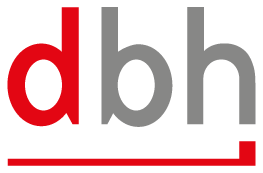VAT reform
22-euro limit for the import of small consignments falls
E-commerce has grown strongly in recent years. An increasing number of new providers from third countries have also contributed to this. These traders have previously benefited from small consignments, as special exemption limits for customs duties and VAT applied. In previous practice, import duties were incurred depending on the value of the goods and the type of shipment. Mail order companies from third countries took advantage of these tax exemptions, in some cases by deliberately under-invoicing the goods.
By under-invoicing these consignments, the tax authorities lost revenue from import VAT. At the same time, EU suppliers who were not exempt from VAT suffered under the previous regulations. This is where the second stage of the VAT reform came in with the change to the import procedure for small consignments on July 1, 2021.
What are the current regulations on customs duties and import sales tax?
Until now, it depended on the value of the goods and the type of shipment whether import duties were incurred for orders from third countries via the Internet. The regulation consisted of three points:
- Value of goods under 22 euros: No import duties were incurred. Exceptions were alcoholic products, perfumes and eau de toilette as well as tobacco and tobacco products and goods containing coffee (excise duty regardless of the value of the goods).
- Value of goods 22 – 150 euros: No customs duty was charged, but import sales tax was levied. However, this was not levied by German customs due to the administrative burden if the amount of import duties was below the threshold of 5 euros. The effective value limit “value of goods + shipping” was therefore around €26.30 in Germany.
- Value of goods over 150 euros: Duties were incurred according to the applicable customs tariff.
Import procedure for small consignments
What changes are planned for small consignments and from when?
In principle, the legislator already decided in 2017 to abolish the exemption limit for the import of shipments from non-EU countries (third countries). This change was originally scheduled to take effect on January 01, 2021, but was postponed until July 01, 2021.
Customs declarations for all commercial goods
From this date, electronic customs declarations must be submitted for all goods consignments (“low value consignment”), albeit with a significantly reduced data set compared to the standard customs declaration (“super reduced data set”, e.g. specifying the 6-digit code in the goods tariff number is sufficient). This regulation applies to all consignments regardless of the carrier, i.e. not only to postal and courier consignments.
Goods subject to excise duty or goods that are subject to prohibitions or restrictions cannot be declared using this reduced data set; a normal electronic customs declaration with a full data set is still required here, regardless of the value of the goods.
For customs, the change means an immensely increased workload. In order to avoid congestion, all shipments with a value of less than €150 are to be processed automatically in the future using the new ATLAS-IMPOST IT procedure. The launch of the ATLAS-IMPOST system was originally planned for July 1, 2021, but was delayed until January 15, 2022.
Customers of dbh can relax about the launch of IMPOST. Our customs software Advantage Customs is ready and can of course also be used for the new customs declaration type APK when it goes live.
Collection of import sales tax
The VAT exemption for the import of small consignments with a value of up to EUR 22 has been removed. All goods imported into the EU will be subject to import VAT from July 1, 2021.
In order to simplify the payment of VAT for shipments to private customers with a material value of 150 euros or less, a one-stop store has been created in the form of the Import One Stop Shop (IOSS). After appropriate registration, the sales tax can be collected by the seller from the end customer and – regardless of the country of receipt of the goods – paid collectively to the selected tax authority by the end of the following month. Detailed information on this can be found on the pages of the Federal Central Tax Office.
In addition, there are also special arrangements for shipments where the IOSS is not used (Special Arrangement). Here, the import VAT is collected by the carrier (postal or parcel and express service provider) from the consignees and transferred collectively to the customs administration in the following month.
Detailed information on VAT rules in e-commerce are also provided by the EU.
What is the legislator’s aim in adapting the import procedure for small consignments?
Online retail has seen a massive increase in small shipments in recent years. Around 150 million parcels are imported into the EU VAT-free every year.
In particular, traders from third countries have taken advantage of the regulations for small consignments with the existing exemption limits in order to save import VAT and duties. The EU assumes that around 25% of small consignments systematically contain undervalued goods or incorrect descriptions of goods.
Dropshipping has further exacerbated this problem. In this form of e-commerce, an online retailer from the EU offers goods from the Far East in its online store. In order to avoid warehousing and import costs for the retailer, the goods are shipped directly from the Asian supplier to the end customers. As a result, the value of the individual shipment is often below the exemption limit of 22 euros and is thus exempt from import VAT. In this way, the retailer can offer his goods at a lower price than if he first imported them and shipped them himself.
These developments have so far deprived the treasury of massive amounts of revenue. Estimates put the figure at 5 billion euros per year. The new regulations are intended to close these loopholes and ensure that VAT is paid where the consumption of goods takes place. Furthermore, the legislator hopes to be able to take better action against fraudsters who want to avoid the import VAT. Currently, Customs only conducts focus inspections to detect systematic under-invoicing.
The EU and German legislators are also pursuing the goal of strengthening the domestic economy with the new regulations on the import of small consignments and the abolition of the exemption limit. It is assumed that in future more goods will be purchased from the EU rather than from foreign online retailers.
Equipped for all customs requirements with dbh software
Our customs software Advantage Customs is of course also the right solution for processing IMPOST declarations.
You have a question?
We will be happy to advise you on our customs & foreign trade and shipping solutions.
Update on the import of small consignments
VAT reform: import procedure for small consignments under 22 euros
E-commerce has fundamentally changed retail. New suppliers from third countries are constantly offering their goods in the European Union. So far, these dealers have benefited from exemption limits for small shipments, because special tax exemption limits apply to...
Knowledge and background on the 2020 vat reform
Simpler, less prone to fraud and better able to take advantage of the internal market, these are the objectives of the European Union's VAT reform. To this end, the EU has adopted short-term measures, so-called "Quick Fixes", as of 01.01.2020. Background on the 2020...
Your contact to dbh
Are you interested in our products?
You can reach our sales department directly
+49 421 30902-700 or sales@dbh.de
You have a question?
You can reach our support team via support@dbh.de
You can find an overview of our telephone contacts here.




